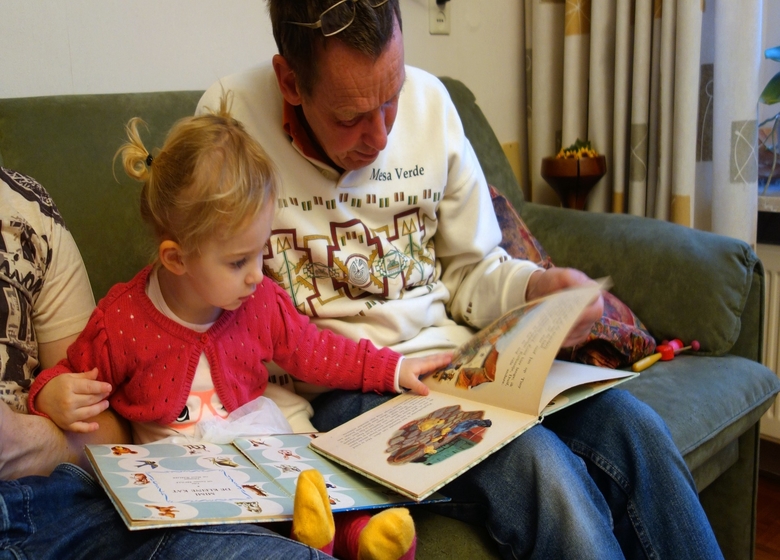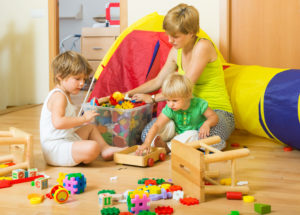Accelerate And Enhance The Language Abilities Of Your Child
Parents play a critical part in the development of the language of a child. Studies have shown that children who are reading and talking to a lot during early childhood will have more vocabulary and grammar than those who are not. Here are a few easy ways to foster the language development of your baby.
1. Approach to them like the elders:
If something is asked by a 6-month-old or a 1-year-old, we can reply to them just as we would reply if an elder asks the same question. If the child points to a hanging wall and asks what it is, instead of just responding “It’s a picture (or a painting),” we can offer an elaborate response to the context and other complex object details. Just like we’d explain the same picture to an older individual. Curt reactions to the discussion may be discouraging to the kid. A longer answer from us can trigger the kid’s fresh questions and discussion.
2. Talk more with your child:
Narrate the evolution of the day. For example, tell your kid, “We’re going to take a bath now. Can you feel the hot water on your stomach? We’ll get dressed and go for a stroll when we’re drying off.”
3. Approach to no limitations and no waiting:
We might not have to wait until the kid begins to speak his original phrases. Imagine a situation in which the child has an excellent memory that in the first instance he can remember everything but has trouble speaking so he can’t repeat anything. So if we’re waiting for a 6-month-old child to talk original phrases or repeat what we’re saying, we’re missing a wonderful teaching chance.
No restrictions–The kid may have constraints on his capacity to learn. But as parents, we can attempt not to limit our ability to speak to him or educate him.
4. Enjoy music together:
Young kids love movement and music. They learn about the world around them and the rhythm of language when they listen to lively songs
5. Longer sentences/parts of speech approach:
While talking to a 1-year-old child, instead of stating “Look, there’s a kid coming,” we can say “Look, there’s a kid wearing a blue shirt and carrying a bag walking towards you.” That enables us to cover distinct sections of speech and more phrases to build up his vocabulary.
6. Tell stories:
Make up elaborate character tales, conflict, adventure, and a happy ending. Make sure the stories fit the interests of your child and are not too frightening for their liking.
7.‘5-Sentences’ approach:
Our language tests had questions like’ Write 5 phrases about your town’ when we were in grade 1 or 2. Taking inspiration from this, we might attempt to talk about at least 5 phrases about all that children want to learn. If a kid points on the highway to an animal or a car and asks what it is, it would be good to say about the animal or car in at least 5 phrases. Whether the child can remember what we said doesn’t matter. But it’s an opportunity to expose them to various words and constructions of sentences.
8. Follow your child’s lead:
If your little one in a book seems to be interested in a certain picture, keep talking about it. Show her more ships if she seems to be fascinated by a ship and speak about them too. Repeat back to her, babbles back to her, ask questions, and communicate with them. You can even attempt to record your kid and play it back on a tape recorder.
9. Never criticize the articulation or language patterns of your child:
Instead, with the right pronunciation or word use, repeat his statements back to him. Give lots of praise to your kid for their efforts.
10. Read to your baby:
Reading to your child is never too early. The quantity of time parents spend reading with their kid is a good predictor of future reading achievement. Parents can begin with easy board books and graduate as their kid grows older to picture books and longer stories. The local library or bookstore storytimes can also assist a pre-school student to grow book love.
Children’s language development is incredible, and it’s a development that many parents are looking forward to. Helping your kid learn the language is a very easy secret: talking lots together and listening to lots.
The development of language is a critical component of the general growth of your child. It promotes the capacity of your child to interact, express and comprehend emotions. It also promotes thinking, problem-solving, and relationship development and maintenance.
Also Read: Sign Language To Communicate With Babies













